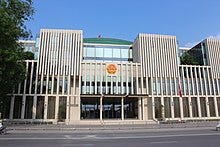Cuba and Vietnam deepen relations
The step-by-step construction of a more just international order
The socialist republics of Cuba and Vietnam recently commemorated their historic relation of six decades. The two nations continue joint theoretical reflection on their experiences in the construction of socialism, and they are deepening economic ties. Cuba and Vietnam are appreciated throughout the world, especially the Third World, for their heroic resistance to Western colonialism and imperialism, and each has a special place in the collective memory and consciousness of the other.
President of the National Assembly of Vietnam visits Cuba
Vuong Dinh Hue, President of the National Assembly of the Socialist Republic of Vietnam, arrived in Cuba on April 23, in response to an invitation by his Cuban counterpart, Esteban Lazo Hernández, President of the National Assembly of the Republic of Cuba. Vuong was accompanied by a large delegation, which included members of parliament, ministers of the executive bran…



